Šuto Orizari: Europe’s Biggest Roma Settlement
Just outside downtown Skopje is the municipality of Šuto Orizari, commonly known as Šutka and home to 18,000 of Macedonia’s Roma population. We took a taxi to Šutka’s market, to see what life is like in Europe’s largest Roma settlement.
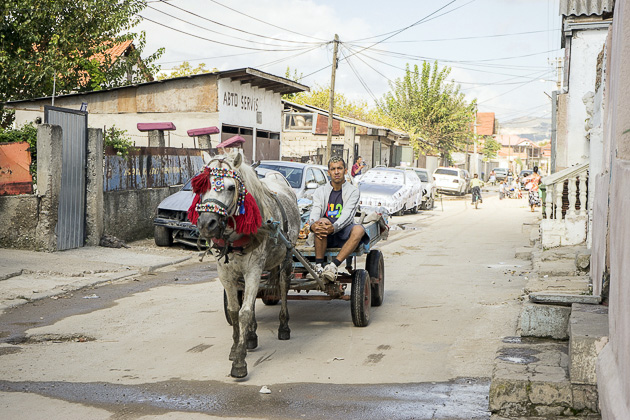
Šutka isn’t exactly a tourist destination, and many Macedonians would never even entertain the thought of visiting the neighborhood. The unfortunate truth is that the Roma lead a visible life of misery in Skopje. These are the people picking through the city’s waste bins. The women cradling seemingly drugged-up children on street corners, begging for money. The guys aggressively washing your window at the traffic light, even though you’re waving them off. The naked kids bathing in the city’s public fountains. The ones slowing down traffic on the city’s main boulevards with their donkey carts.
“Why would you want to visit their home? They’re thieves! You’ll be robbed, for sure!” Our life of travel has mostly immunized us to such ethno-hysteria, but we were still moderately worried about visiting Šutka, and took extra precautions, leaving our cellphones and most of our cash at home. But on arriving, we immediately realized there was nothing to be worried about. Šutka is a neighborhood just like any other.
Okay, so maybe it’s not just like any other neighborhood. Visiting Šutka feels like visiting another country. The architecture is different than in the rest of Macedonia, featuring huge, colorful houses decorated with gaudy lion statues. People speak Romani. Life is lived out on the streets, and it’s lived loudly. And there are herds of geese squawking around many of the front yards — we’d later learn that these are fighting geese. Not exactly “typical” Macedonia.
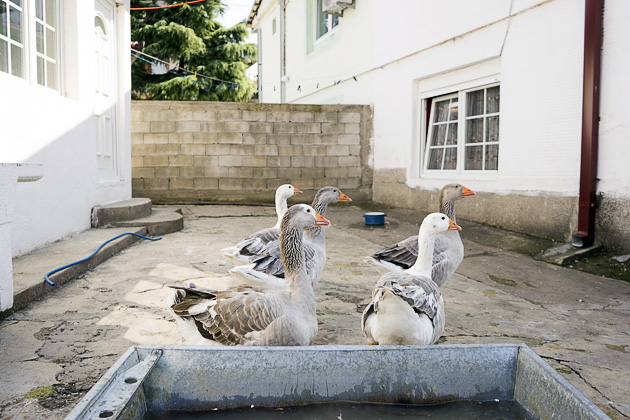
But the people were fine! Everyone we interacted with was perfectly friendly, nicely dressed and well-educated. One curious girl, trying to puzzle out where we might be from, had switched from Romani to Macedonian to English without skipping a beat. These are certainly not the same people I’d seen in Skopje ripping open trash bags and collecting plastic bottles.
I’m not saying that crime doesn’t happen in Šutka; despite recent improvements, this is still a depressed area, with a frustrated population that has to deal with a lot of institutional and societal discrimination. Taking sensible precautions is a good idea. Still, we never felt the slightest bit nervous. In fact, our visit was a real eye-opener; it was so different than what we had expected.
If you’re the slightest bit interested in Roma culture, a short visit to Šutka is essential. And if you’re not interested in them, maybe you should be. This is one of the world’s most misunderstood people.
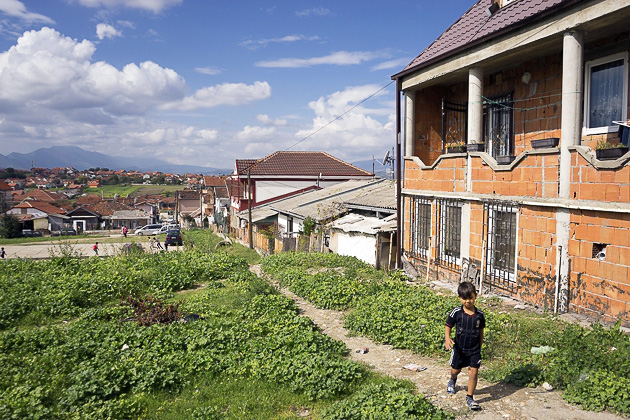
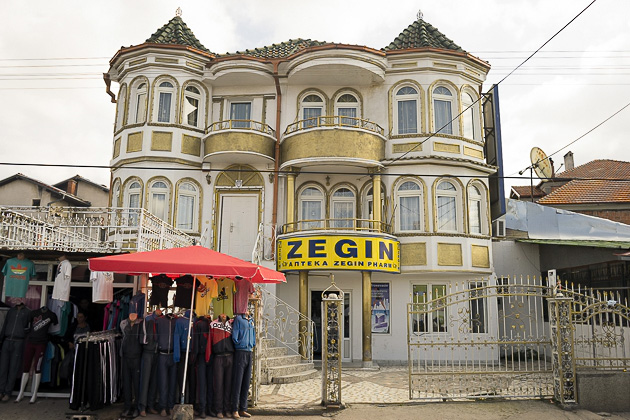
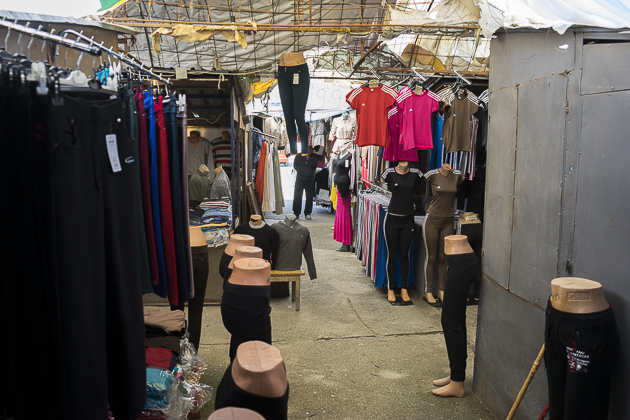
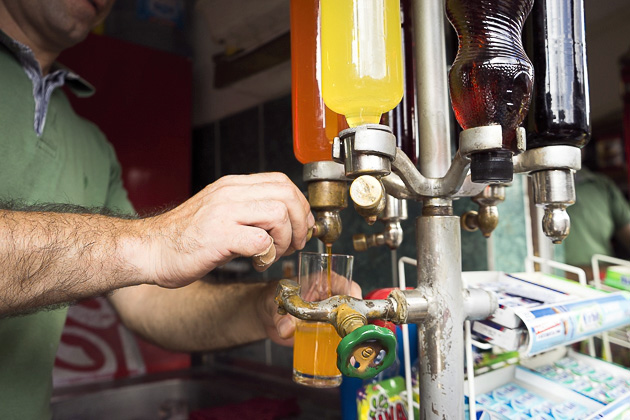
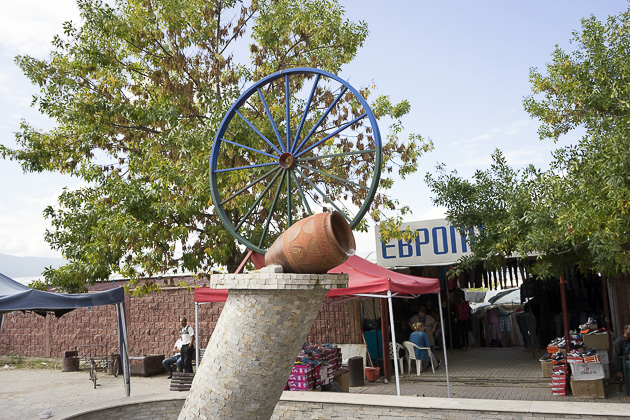
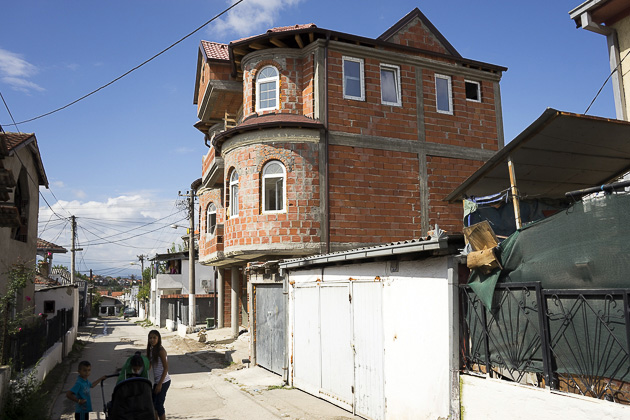
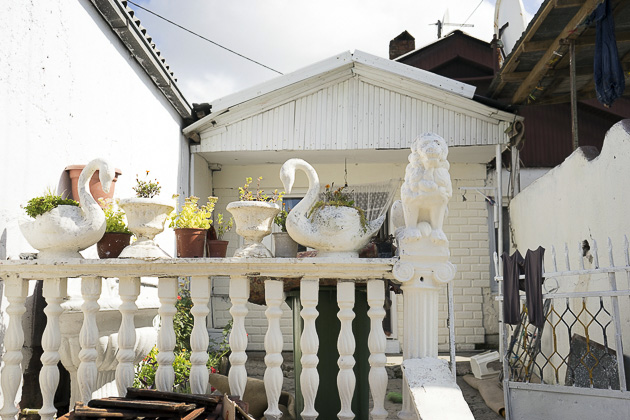
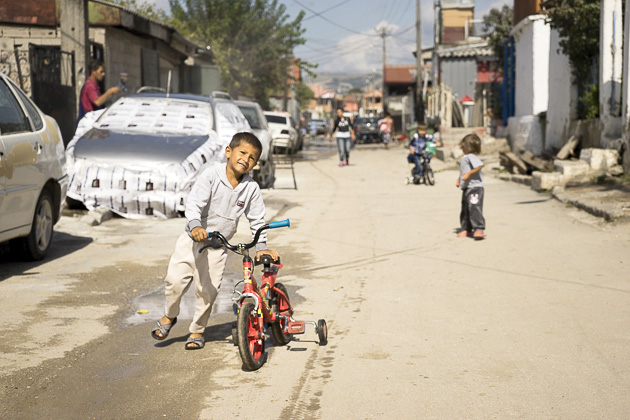

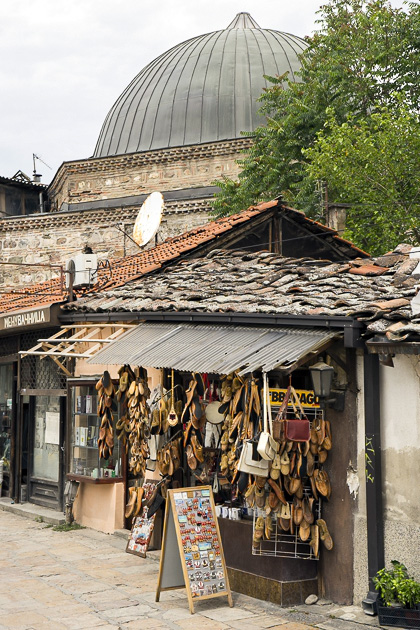
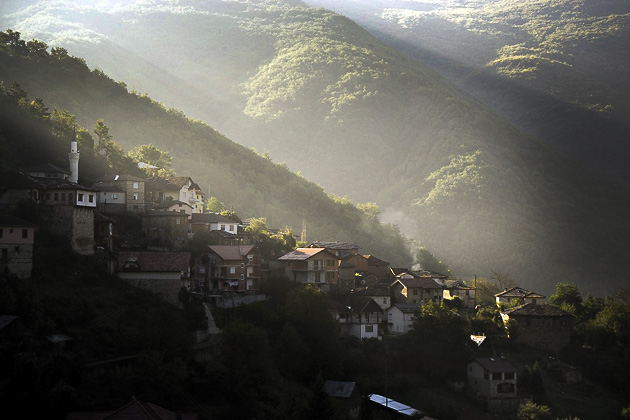

Lovely photos ! Great post